September 2025 | Volume 3 | Issue 2 | Previous Issues
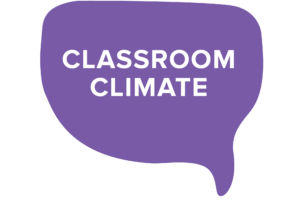
Each month, this year, we’ll be highlighting a teaching tip from one domain of the Teaching Effectiveness Framework (TEF). Our teaching tip for this month comes from the Classroom Climate domain. Weeks 2-4 are an ideal time for you and your students to co-create group agreements, which will be used all semester long to guide behaviors and interactions.
Setting Group Agreements
This is one method to establish agreements within your class community.
Pre-Activity Instructor Reflection
What norms would you like to see in your classroom? Do these norms privilege your values over your students’ in any way? For example, if being assertive and speaking up is a norm that you think is important, are there students whose cultural backgrounds might influence them to think differently? Is it possible to honor differences like these in a way where none are viewed from a deficit lens?
(Optional) Begin with an Introductory Activity
Option 1:
Ask students to freewrite on the following prompt:
Think of classes you have had that you have enjoyed being in, and those you were uncomfortable being in. Write down 5 reasons, or things about the class that made that class enjoyable, and 5 things that made that class uncomfortable.
Option 2:
Share this picture (project to the class/screenshare on Zoom). Ask students to answer: What do you see in this picture? How sure are you? How do you know? What else can it be? What might someone else be seeing?
Have them share their answers and reflect on how the same thing can be seen in different ways. Ask what they think the artist intended for them to see. Make the point that you can’t always be sure about what you are seeing and hearing, so it’s important to follow up before making judgments.
Start by Sharing Your Expectations and Why You Hold Them
Distinguish between course policies (unilateral choices you’ve made) and community agreements (what will collectively be constructed). Be transparent about course policies and expectations you’ve predetermined and why they matter to you.
Small Group Brainstorming
- Divide the class into smaller sub-groups of three to five individuals.
- Have students brainstorm at least 3 characteristics of an engaged class (for courses offered as mixed modalities, you can add details, such as “an engaged, discussion-based F2F+ class” or “an engaged, problem-solving telepresence class”).
- For each of the characteristics, have the students suggest 3 agreements that the group could adopt to make classes more productive.
Large Group Sharing and Building Consensus
- Encourage each group to share their lists (add them to a shared document) and work to achieve consensus. Talk about the rationale behind each expectation and how it supports learning in the class. Ask the groups to explain their reasons for suggesting a particular agreement and to specify what they mean if the agreement they suggest is vague. There may be some overlap.
- If topics particularly relevant to the course modality (F2F+, telepresence, etc.) haven’t come up, raise them, such as:
- Some modalities may increase accessibility and also may create accessibility challenges – how do we plan for accessibility?
- How do varied points of access impact participation? In-person students, what would you like to see from your classmates on Zoom? Zoom students, what would you like to see from your in-person classmates?
- Work with students to engage in perspective-taking by asking how breaking an agreement might affect others in the class and why the person breaking the norm might have done so. Facilitate a conversation on how to respond if a student departs from the norms.
- Record the community agreements and post them on your Canvas course space.
Review and Revise Community Agreements
Periodically, have the class take a moment to evaluate whether the community agreements established at the beginning of the semester are serving the group, and whether revisions need to be made.
Use the agreements to address challenges (from lack of intellectual risk-taking to conflict), and continue to revise, as needed.
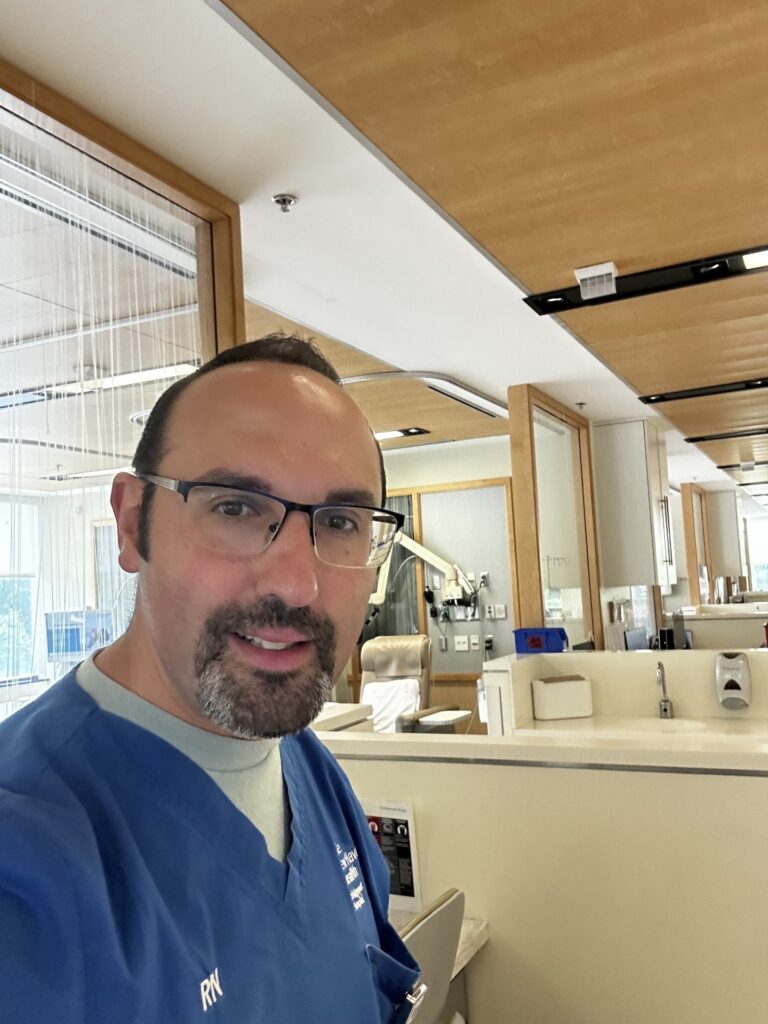
Paul Kruglov
This month, we have the pleasure of highlighting the work of Paul Kruglov, Assistant Professor of Nursing, Williston Campus.
Please tell us a little bit about your background and what brought you to VTSU.
Growing up in a family who worked in healthcare piqued my interest in a profession that helped people. Early on, I knew I wanted to provide direct patient care in a fast-paced environment. During high school, I started volunteering at the local hospital, in the emergency department (ER). I immediately found the fast-paced, high acuity setting of the ER appealing, so I enrolled in nursing school. Throughout nursing school, I kept volunteering at the ER, and ultimately, in my senior year, I became an ER-technician, which provided even more insight and ultimately, direct patient care.
Upon graduating from nursing school with my BSN degree, I applied and received a full-time position in the ER. During my years working in the ER, I gained valuable patient care experience and was awarded the opportunity to mentor nursing students during their clinical rotations through the ER. Being able to apply my clinical skills toward teaching students to care for patients made me realize how much I loved to teach, which ultimately led me to graduate school, where I earned my MSN degree.
After obtaining my graduate degree, I worked as a clinical associate-on a part-time basis-teaching nursing students during their clinical rotations. Although being a clinical associate provided me with the hands-on teaching, I knew that one day I wanted to teach in a classroom setting, which ultimately led me to Vermont State University. I have close friends who live in Vermont, who had spoken highly of Vermont State University.
What are your favorite things about your field or discipline?
My favorite aspect of my profession is being able to provide direct patient care as a nurse and the ability to teach the next generation of nurses as a professor, at Vermont State University. The duality of the nursing profession as a nurse at the bedside, and as a nurse educator in the classroom provides an opportunity to work directly with patients and with students. I also like that the profession of nursing is interdisciplinary allowing collaborations with other professions, both in the medical and educational environments.
Is there any advice you would provide first year instructors based on your own experiences over the past year?
The best advice I can provide to first year educators is to establish a healthy academic workload balance. It was challenging to prioritize academic work with service to the university and balancing extracurricular activities. I would also recommend setting realistic expectations for oneself as a novel educator and seeking out support and mentorship from senior faculty. I strongly recommend utilizing the support, abundant resources and mentorship provided by CTLI, which has been instrumental in pedagogical development of novel educators.
Were there any professional development opportunities offered during the 2024-2025 academic year that you found to be particularly beneficial?
The professional development opportunities that I found most helpful and beneficial were offered by the CTLI. These educational programs included a myriad of immersive and interactive developmental sessions that established a foundation necessary for novel educators to be successful in the classroom. Examples of beneficial programs I found interesting include engagement with difficult students, the Canvas course template, and teaching effectiveness.
How do you establish a positive classroom climate at the beginning of the semester? Are there specific strategies you use?
It is important to create a safe, welcoming space for students to learn and feel valued and appreciated. Establishing a space that is inclusive of ideas, values and opinions is important for educational growth. Some of the strategies that I utilize to establish a positive classroom environment include a welcoming, approachable demeaner, that I believe is necessary for students to feel comfortable learning in the academic space.
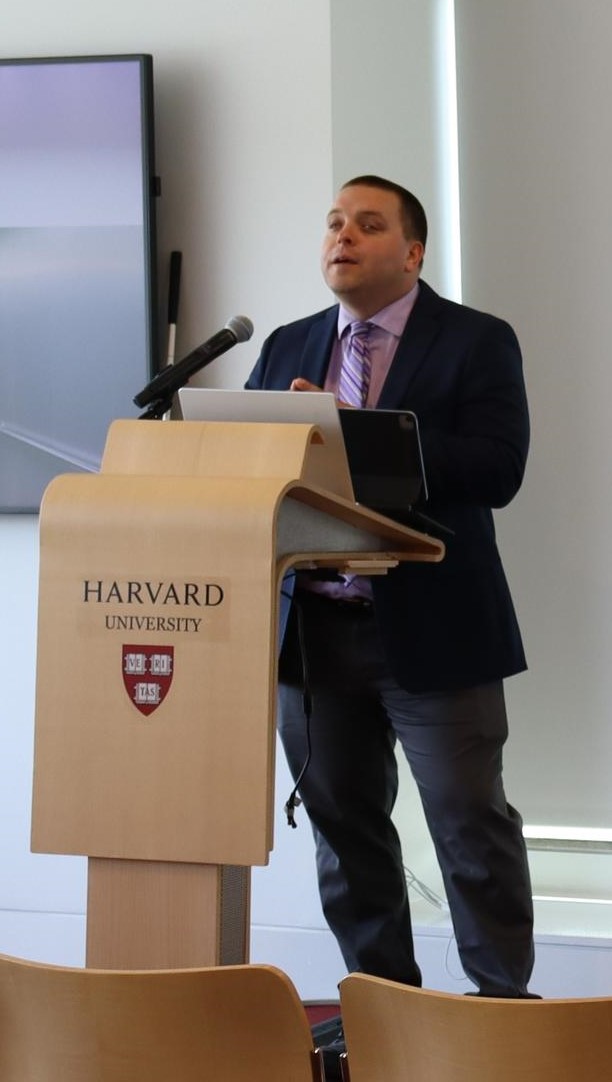
Vermont State Colleges System 2025 Academic Retreat
The VSCS Teaching & Learning with Technology committee is excited to announce that this year’s academic retreat is being held on Vermont State’s Randolph campus on Friday, October 10th from 9:00am-3:30pm.
This Year’s Theme:
A+ at the VSCS: Accessibility, AI, and Approaches to Technology
Keynote Speaker:
Kyle Shachmut
Senior Director of Digital Accessibility, Harvard University
Kyle is the Senior Director of Digital Accessibility at Harvard University, providing strategic direction to digital accessibility efforts across Harvard’s schools. He frequently works at the intersections of information technology, disability inclusion and academic administration. He led creation of Harvard’s Digital Accessibility Services team and collaborates with institutional leaders to guide governance of the University’s Digital Accessibility Policy. Previously, his focus area included a universal design approach integrating accessibility into at-scale learning experiences through HarvardX—Harvard’s initiative that creates online courses through the Office of the Vice Provost for Advances in Learning.
Beyond Harvard, Kyle is co-chair of the EDUCAUSE IT Accessibility Community Group, the largest affinity group for accessibility professionals in higher education. He has advocated for greater accessibility in community and professional associations for over a decade, advising local state and federal policymakers. In 2021, he received the ‘Rising Star Award’ among higher ed technology professionals from Educause.
Outside of higher education, Kyle serves on the Global Leadership Council of the International Association of Accessibility Professionals (IAAP). The GLC provides governance and direction to the IAAP, which his a membership organization that helps advance the profession through certification, continuing education and member support. Kyle frequently consults speaks and writes about matters related to digital accessibility, public policy, technology in education, universal design and more.
Register Now!
All members of the VSCS community are welcome. Please complete your registration by September 15th, 2025 so the TLT can plan for food and logistics.

Fall 2025 – Book Group – Final Chance to Join!!!
This fall, join your colleagues for a book group on The Present Professor.
Description:
It’s hard to learn when you’re under stress, and a lot harder when your teacher is struggling with stress, too. In a world where stress is unavoidable—where political turmoil, pandemic fallout, and personal challenges touch everyone—this timely book offers much-needed guidance for cutting through the emotional static that can hold teachers back. A specialist in pedagogical strategies with extensive classroom experience, Elizabeth A. Norell explains how an educator’s presence, or authenticity, can be critical to creating transformational spaces for students.
And presence, she argues, means uncovering and understanding one’s own internal struggles and buried insecurities—stresses often left unconfronted in an academic culture that values knowing over feeling. Presenting the research on how and why such inner work unlocks transformational learning, The Present Professor equips educators with the tools for crafting a more authentic presence in their teaching work.
At a time of crisis in higher education, as teachers struggle to find new ways to relate to, think about, and instruct students, this book holds a key. Implementing more inclusive pedagogies, Norell suggests, requires sorting out our own identities. In short, if we want to create spaces where students have the confidence, comfort, and psychological safety to learn and grow, we have to create spaces where we do, too. The Present Professor is dedicated to that proposition, and to helping educators build that transformational space.
Meetings:
The book group will be meeting via Zoom on the following dates:
- Friday, September 26th (9:00-10:30a)
- Wednesday, October 29th (9:00-10:30a)
- Friday, December 5th (9:00-10:30a)
How to Sign-up:
To sign up for the group, please sign into your VSC account and submit the following form. The deadline for joining the group has been extended to Friday, September 12th.
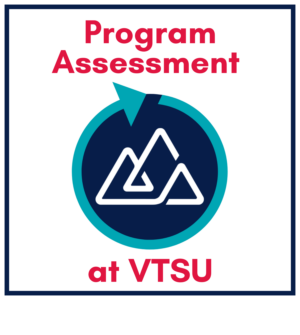
Program Assessment: Fall Workshop Series
Program assessment at VTSU is in its second year. We encourage all faculty to follow the program assessment road map and join one or more sessions in support of their efforts. These workshops will take place on Zoom, Fridays from 2-3pm EST.
Workshop Dates & Topics:
- 9/26: Deans’ Update on Program Assessment: Lessons Learned from 2024-25
- 10/3: Curriculum & Learning Outcomes Crosswalk (Due January Yrs 2 & 4)
- 10/17: Program Outcomes Assessment Matrix (Due January Yr 3)
- 10/24: Yearly Learning Outcomes Assessment Report (Due June Years 1, 2, 3, & 4)
- 10/31: Collecting & Analyzing Direct Measures
- 11/7: Collecting & Analyzing Indirect Measures
- 11/14: PReCIP Report for Non-Externally Accredited Programs (Due June Yr 5)
How to Sign-up:
Register for one or more sessions. When you do, you will receive an automatic email from the CTLI confirming your registration. This email will include the Zoom link and the option to “add to calendar” using an embedded hyperlink – this will work for Outlook, Google Calendar, and Yahoo Calendar.
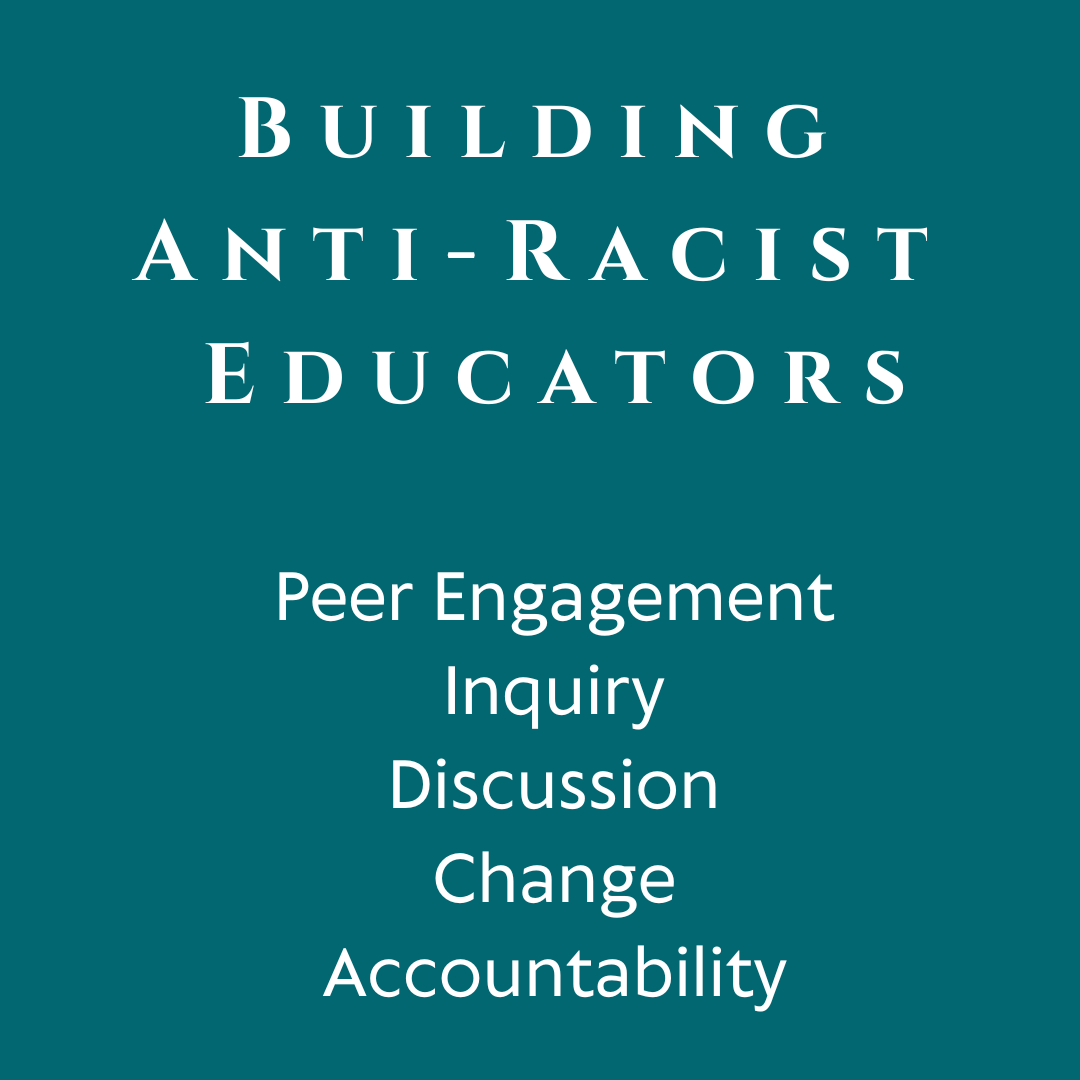
Building Anti-Racist Educators: Reading & Inquiry Series
This Reading and Inquiry Series provides a monthly set of tools for learning, introspection and having conversations about issues of racism in our university, classrooms and communities. We hope that through regular reflection and conversation, you can get better at recognizing and resisting your biases and the impact they have on your students and colleagues.
Meetings:
The group will be meeting via Zoom on the following dates:
- Monday, September 15th (12:00-1:30p)
- Monday, October 20th (12:00-1:30p)
- Monday, November 17th (12:00-1:30p)
- Monday, December 15th (12:00-1:30p)
How to Sign-up:
To receive a calendar invitation, Zoom link, and access to the group’s Canvas space, please fill out the Vermont State Colleges Building Anti-Racist Educators Sign-Up Form.
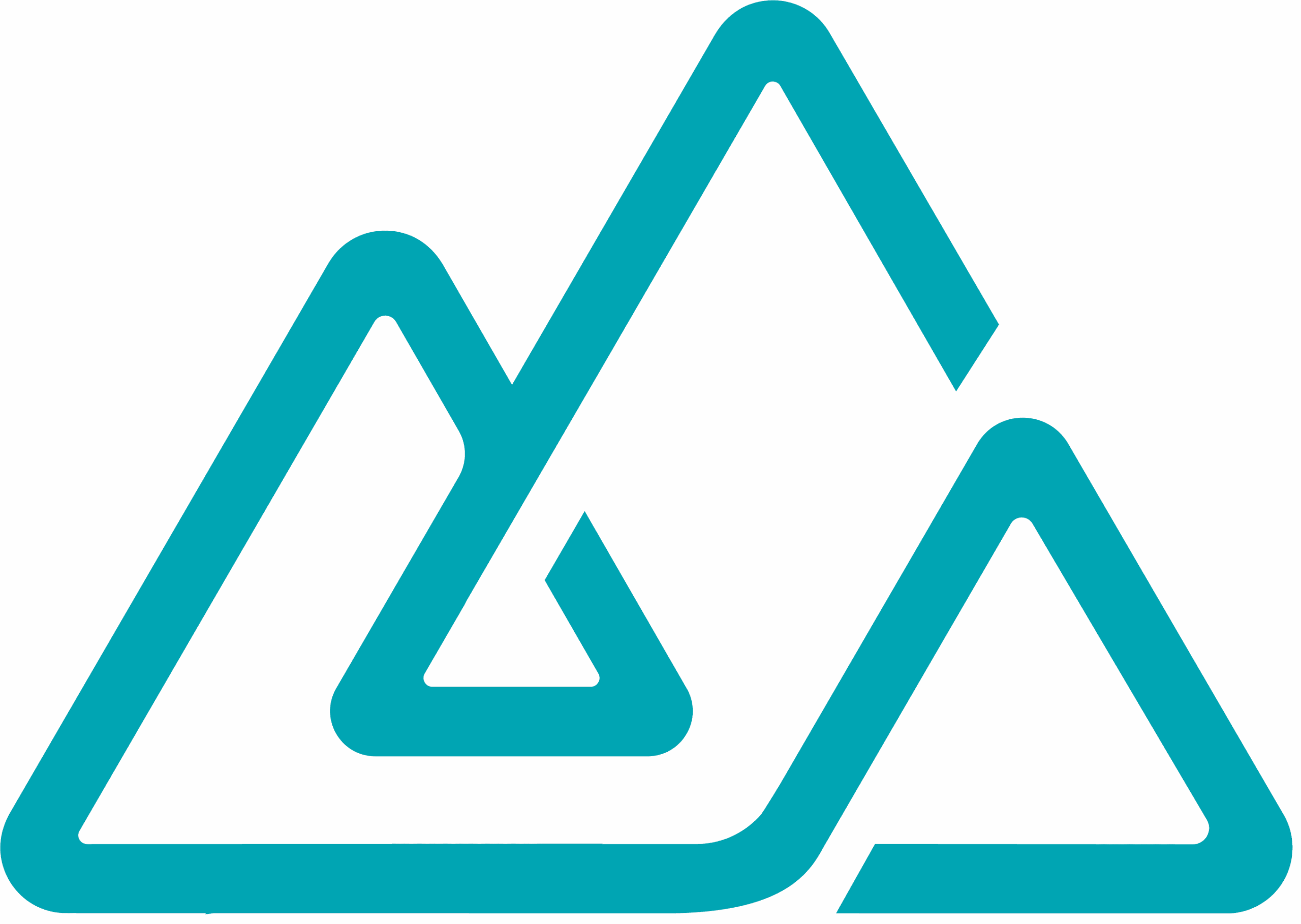
Upcoming Workshops
- September 26 @ 12:00 pm – 1:15 pm
Rural Belonging in the Academy
- September 26 @ 2:00 pm – 3:00 pm
Deans’ Perspectives: Lessons Learned from 2024-25 Program Assessment
- October 2 @ 12:15 pm – 1:15 pm
Adult Learning in Online Classes at VTSU
- October 3 @ 11:00 am – 12:00 pm
For New VTSU Faculty: Fall Friday Sessions
- October 3 @ 2:00 pm – 3:00 pm
Program Assessment: The Curriculum & Learning Outcomes Crosswalk
- October 10 @ 8:30 am – 3:15 pm
2025 Academic Retreat: A+ at the VSCS: Accessibility, AI and Approaches to Tech
- October 17 @ 2:00 pm – 3:00 pm
Program Assessment: The Program Outcomes Assessment Matrix
- October 24 @ 11:00 am – 12:00 pm
For New VTSU Faculty: Fall Friday Sessions
As you likely know, starting in April 2026, all public higher education institutions of our size must be compliant with new regulations for accessibility of digital content. The regulations are based on the WCAG 2.1 AA standards, which are written for a technical audience.
In the CTLI, through the EdPros workshops, reading, and LinkedIn Learning courses, we have been gaining knowledge of digital accessibility. And we are creating tutorials on some of these key skills for faculty, translating the technical standards for general users. We are collating digital accessibility resources on our webpage for easy access, as well.
Check out our second tutorial on the Top 5 Best Practices for Selecting Accessible Color Combinations. And see if you can ace the knowledge check at the end!
Previous Tutorials:
Top 5 Best Practices for Creating Accessible Hyperlinks
If you have feedback on the tutorial or topics you’d like to see us cover in future months, let us know by emailing ctli@vtsu.edu. Thank you so much.
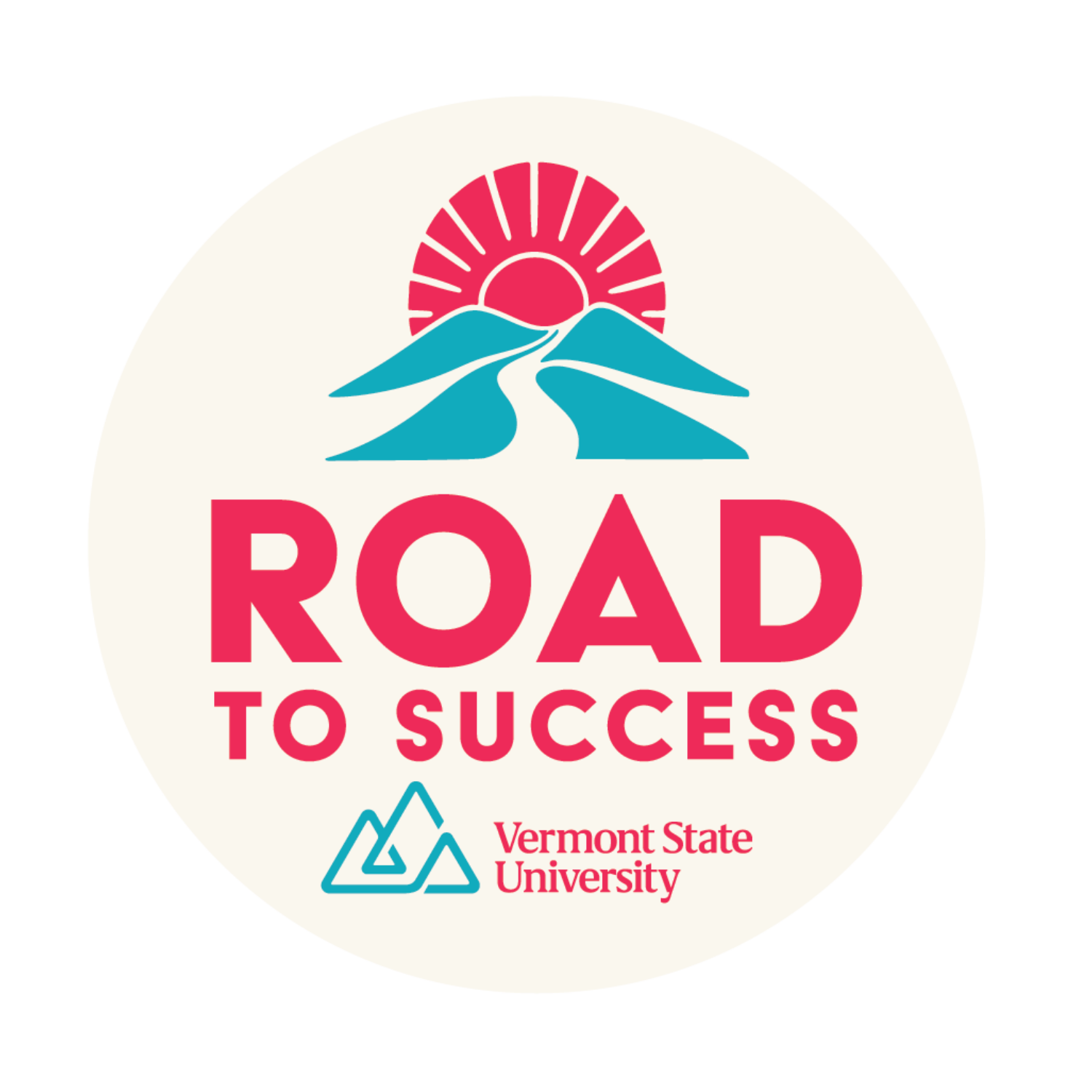
ROAD to Success
Please mark your calendars for two events this month, focused on rural students, co-sponsored by the ROAD to Success project and the CTLI.
On Friday, September 19 from 12:00-1:15pm EST, there will be a Student Voices Panel with speakers from rural backgrounds sharing about their experiences at VTSU. Listening to our students can provide a rich point of reflection and identify opportunities for small changes and improvements.
Then, one week later on Friday, September 26 from 12:00-1:15pm EST, a follow-up session focused on rural student belonging will provide an opportunity to build on takeaways from the panel to put into practice.
Register now!
September 19: Student Voices Panel: Traveling the Road to Success
September 26 Rural Belonging in the Academy

Student Success
Greetings from Student Success – and Welcome Back!
As we kick off the 2025–2026 academic year, the Student Success team is energized and focused on enhancing student outcomes in meaningful and impactful ways. Here’s a quick look at what’s underway:
- Student Aid for Emergencies Fund (SAFE) launched in August – providing critical support when students need it most. [Learn more: Student Finances]
- Ongoing campaigns led by our Tactical Team to promote proven success strategies:
- FAFSA Completion – helping students access financial aid
- Think 30 – encouraging on-time degree completion
- Peer Assisted Learning – now available in Paramedic Medicine
- Family Link – strengthening family engagement [Explore: Sign-up here]
- Financial wellness initiatives – including payment plans, financial literacy, and support for students with high account balances
- Smarter course scheduling powered by Ad Astra
- Fostering belonging and connection for all students
- Handshake app adoption – streamlining access to events, internships, and student employment
- Expanded mental health services to support student well-being
- First-Year Experience development – creating a strong foundation for new students
- Continuing to build a culture of student success – together!
Stay tuned for more updates as the semester unfolds. We’re excited to partner with you in making this a fantastic year for our students!
Academic Support
As the fall semester begins, VTSU Academic Support is excited to share updates from across our campuses. From Summer Bridge programs that helped new students transition into college life, to tutoring opportunities, resource refreshers, and upcoming campus events, each location is offering a range of supports to ensure student success. Below you’ll find highlights from Castleton, Johnson, Lyndon, Randolph, and Williston.
Castleton Campus Academic Support/TRIO SSS
Castleton’s Summer Bridge program for 25 incoming TRIO students began on August 17, supporting first-generation, low-income, and students with disabilities in their transition to college. Castleton is hiring Peer Tutors—recommendations can be sent to Rachel Krevetski at rachel.krevetski@vermontstate.edu. Drop-in tutoring starts Tuesday, September 2 in Babcock Hall, with hours from 11 am–2 pm Monday through Friday and 5–7 pm Monday through Thursday. Academic Support is also hosting a Fall Festival on Thursday, September 11 from 11 am–1 pm. Faculty, staff, and students are all welcome to join on the patio in front of Babcock Hall!
Johnson Campus Academic Support/TRIO SSS
Johnson’s Summer Bridge program for 17 incoming TRIO students also kicked off August 17, supporting first-generation, low-income, and students with disabilities in their transition to college. Johnson is hiring Peer Tutors—recommendations can be sent to Erika Nichols-Frazer at efn00043@vsc.edu. Drop-in tutoring begins Tuesday, September 2 in Dewey Hall 114, 6–9 pm on Mondays, Tuesdays, and Thursdays. Johnson’s Basic Essentials Insecurity Program received a $5,000 Green Mountain Fund grant to stock the campus pantry, provide snacks, fund transportation to appointments, and assist students with school and hygiene supplies through the VTSU student emergency fund.
Lyndon Campus Academic Support
Lyndon’s Summer Bridge program for 16 incoming first-year students kicked off August 17, offering an introduction to campus life, resources, and college success skills. Funded by the McClure Foundation, the program welcomed students regardless of first-generation, low-income, or disability status, though all met TRIO SSS eligibility requirements. Lyndon is hiring Peer Tutors in multiple subjects—recommendations can be sent to Lori.Drew@VermontState.edu. Drop-in tutoring begins Tuesday, September 2 in LAC 325, open to all students with no appointment needed. VTSU has submitted proposals for two new TRIO SSS programs, including one at Lyndon and one for students with disabilities, pending funding decisions.
Randolph Campus Academic Support/TRIO SSS
Randolph is hiring Peer Tutors, with particular need in Nursing, Mechanical Engineering, and Vet Tech. Recommendations can be sent to Skye Erskine at skye.erskine@vermontstate.edu. In-person STEM drop-in tutoring begins September 1, Tuesday through Thursday from 6–9 pm in Conant 107. Professional tutors will also offer a mix of drop-in sessions, group work, and one-on-one appointments through the Tutor Request form on the portal starting in the second week of classes; schedules will be posted on the Academic Support Resource found on the Portal. The Academic Support office in Conant 200 is hosting an “Academic Resource Refresher” on September 2 from 12–1 pm, and later in September will hold a Fall Festival with games, refreshments, and activities (date to be announced on the Academic Support Resource). Randolph also has a new testing room in Conant with video monitoring and individual carrels to accommodate larger groups of students, with priority given to those with test-taking accommodations. To schedule, students can email randolphtesting@vermontstate.edu.
Williston Campus Academic Support/TRIO SSS
Williston is also hiring Peer Tutors in high-demand areas including Nursing, Mechanical Engineering, and Vet Tech, with recommendations sent to Skye Erskine at skye.erskine@vermontstate.edu. In-person STEM drop-in tutoring will be available as soon as possible, with the schedule to be posted once confirmed. For now, professional tutors are available remotely, with in-person options to be communicated through the Academic Support Resource found on the Portal. The Academic Support office in room 223 will host an “Academic Resource Refresher” on September 4 from 12–1 pm, and like Randolph, Williston will host a Fall Festival later in September with games, refreshments, and activities (date to be announced on the Academic Support Resource). Williston has also expanded test-taking options with new video monitoring; students can schedule by emailing willistontesting@vermontstate.edu.
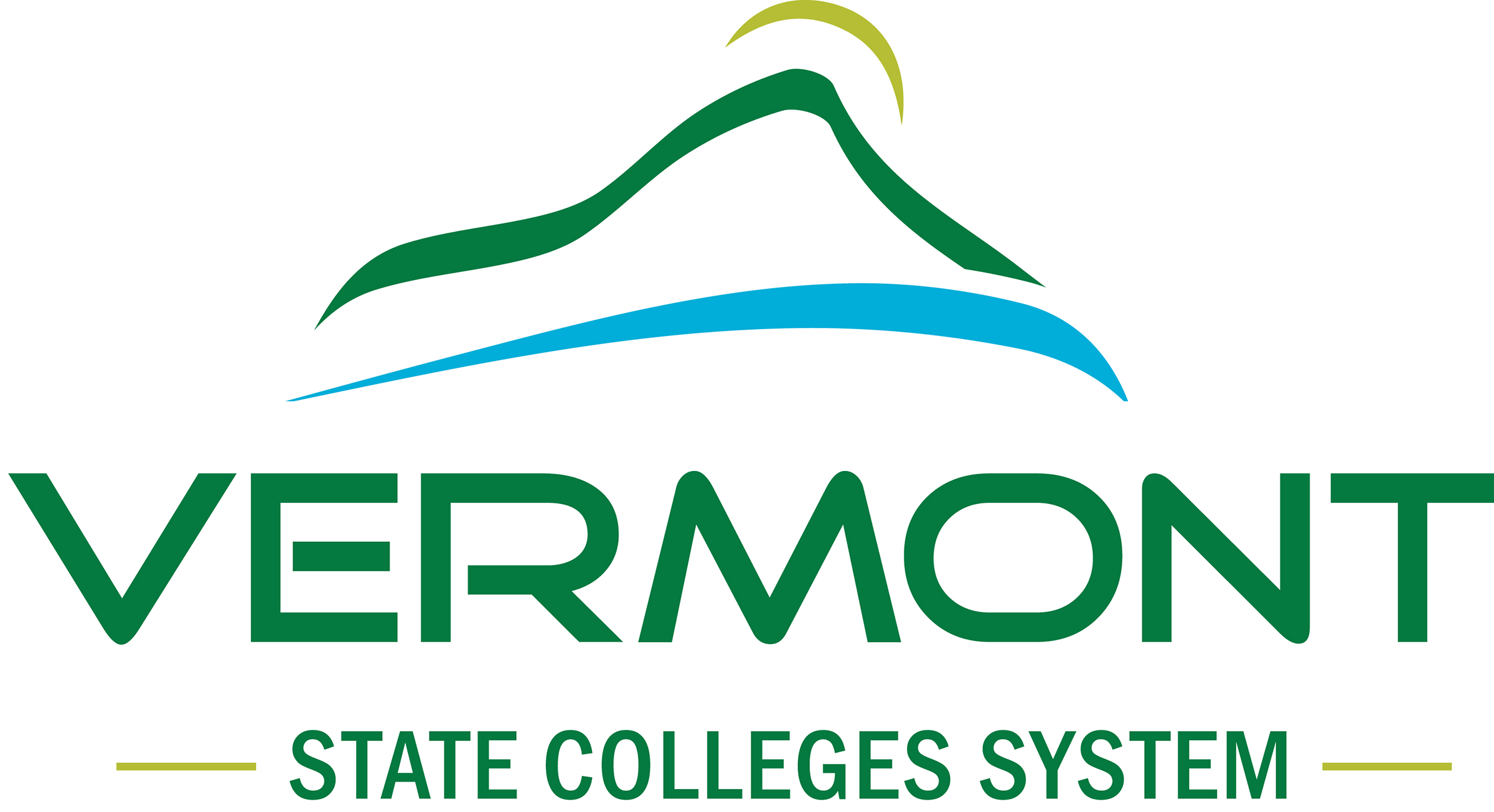
VSC Undergraduate Research Symposium
It is with great pleasure that we invite you to the annual VSC Undergraduate Research Symposium, which will be taking place:
Friday, September 19th
9:00a – 5:00p
Room 1787 – VTSU Castleton Campus or via Zoom
The symposium will feature research poster and slide presentations from McNair Scholars and OUR GPS Student Research Fellows from across the VSC system, as well as keynote remarks from VSC Chancellor Dr. Beth Mauch and VTSU faculty member, Dr. Andy Vermilyea.
Oral presentations: 9:00a – 12:00p and again from 1:30p – 5:00p.
Poster presentations: 12:00p – 1:00p
Keynote speeches: 1:00p – 1:30p
Light refreshments will be served and a program with a detailed schedule of the day’s presentations is forthcoming.
Feel free to drop in for all or part of this wonderful event!
Questions? Please email Dr. Debbie Warnock, the Associate Director of the McNair Scholars Program, at debbie.warnock@vermontstate.edu.
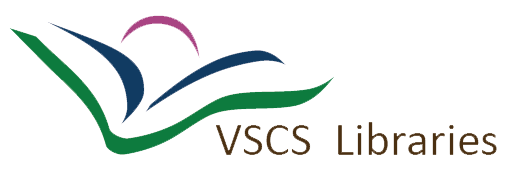
VSC Libraries
We are thrilled to see the VSCS Libraries buzzing with energy again as people return to their campuses and dive into our digital resources. Check out the email we sent out a couple weeks ago!
Orientations: This fall, we’re offering subject-specific orientations for the first time! These sessions are designed to help your students dig deeper into resources for their degree programs. Upcoming orientations include: Business & Accounting, Natural Sciences, Allied Health, Dimensions & English Comp classes, and more! Check the calendar before classes begin.
Website & Subject Guides: The library homepage and subject guides have been refreshed and are ready to support your learning objectives. You can access the subject-specific guides directly through the “VSCS Libraries Resources” tab in your Canvas course.
Get Help: Please encourage your students to use the red Get Help tab on the library website for quick access to support via live chat, text (802-278-0997), phone (800‑431‑0025), email (libraries@vsc.edu), or to schedule a research appointment.
Meet Your Librarian
Have you connected with your liaison librarian yet? They’re here to support you and your courses.
Charlotte Gerstein
Charlotte.Gerstein@vermontstate.edu
Schedule an appointment
Lindsey Roberts
Lindsey.Roberts@vermontstate.edu
Schedule an appointment
Library Director
Alejandra Nann
Alejandra.Nann@vsc.edu
Wishing You a Wonderful Fall Term. Let’s make this semester a great one!

VTSU Online Administration
Adult Learning Theory: Many of our online learners are 25 or older. Principles of andragogy can guide course development and approaches to teaching that more deeply engage adult learners and increase persistence and retention. This fall, VTSU Online and the CTLI are offering 4 opportunities (once per month) for you to gain ideas about how to incorporate adult learning theory into your online teaching:
- Wednesday, September 24 @ 12:15 pm – 1:15 pm: Adult Learning in Online Classes at VTSU
- Thursday, October 2 @ 12:15 pm – 1:15 pm: Adult Learning in Online Classes at VTSU
- Wednesday, November 5 @ 12:15 pm – 1:15 pm: Adult Learning in Online Classes at VTSU
- Thursday, December 4 @ 12:15 pm – 1:15 pm: Adult Learning in Online Classes at VTSU

The VSC IT Learning Technologies Team
The VSC IT Learning Technologies Team continues to provide support for instructional and classroom technology at VTSU and CCV.
To learn more about the Learning Technologies staff and services and for access to planned upgrades, classroom guides, on-demand resources, assistance from Senior Instructional Technology Specialist Sean Dailey, and more, a Learning Technologies SharePoint Site is now available.
Featured on the new site, and of particular interest to our faculty at the start of this academic year, Panorama is the new accessibility platform adopted by the VSC and integrated in Canvas across the system. WCAG 2.1 compliant, Panorama is supported by the VSC IT Learning Technologies Team and provides instructors with feedback and resources directly in Canvas to ensure course content meets new accessibility standards. For more information about VSC IT, we encourage you to review the VSC IT Support Site and their Fall 2025 Newsletter for the latest updates and announcements.
Reminder: Upcoming Professional Development Opportunities
- Monday, September 8 @ 12:15 pm – 1:15 pm: Introduction to Panorama for Digital Accessibility
- Thursday, September 18 @ 12:15 pm – 1:15 pm: Introduction to Panorama for Digital Accessibility